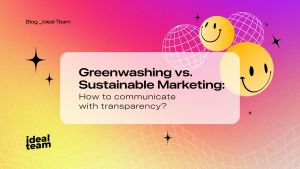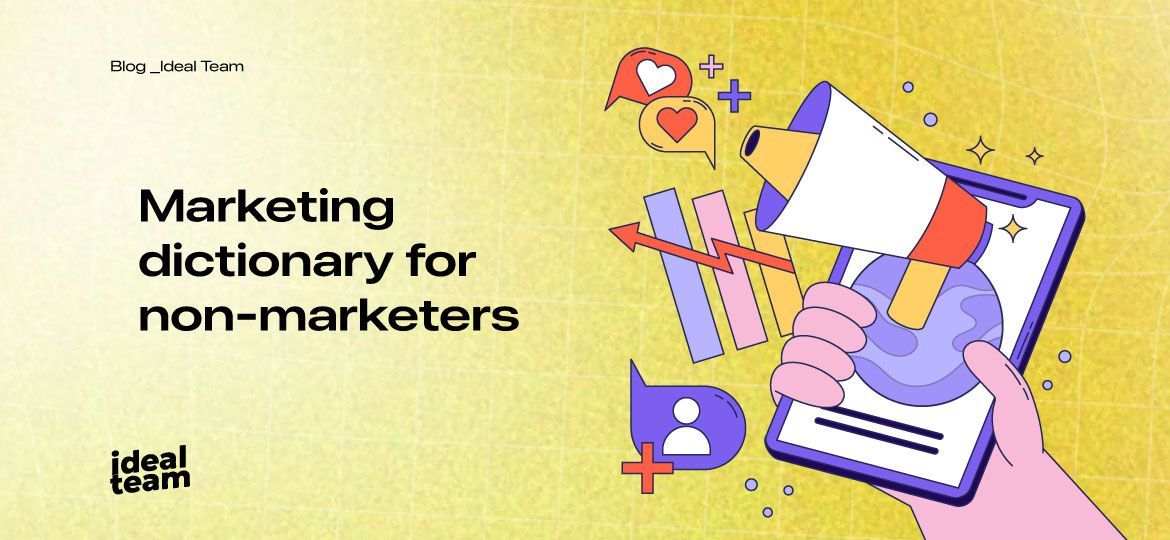

Marketing dictionary for non-marketers: words you need to know to speak the language of digital marketing
Words come and go, and you don’t understand what they are talking about. Yes, surely this has happened to you in a conversation about digital marketing, where you were left without understanding anything, feeling like they speak in another language. The digital world introduces new terms and ways of referring to specific actions performed, so today we want to provide you with a marketing dictionary for non-marketers.
From today, you will not be left without understanding what we are talking about, with this list of phrases and words. The world of digital marketing is growing at full speed, and with it, a glossary full of words and terms. It’s time to learn them!
At Ideal Team, we believe that knowledge is power and that understanding the language of marketing not only connects you with your team but gives you real tools to grow.
Marketing words you need to know (yes or yes):
1. Branding
The way a brand presents itself to the world. It’s not just a pretty logo; it’s what evokes a feeling when you see a brand. It’s its tone, its colors, its style, its personality.
That which makes us connect with a brand, and many times, we don’t know why.
2. Lead
A person interested in your product or service wants to receive more information. Someone who left their data and wants to be contacted. We call this pure gold for any sales strategy!
3. Funnel (Sales funnel)
4. CTA (Call To Action)
It is a direct invitation to do something: “Buy now”, “Subscribe”, “Book now and don’t run out of your quota”. A good CTA can make the difference between scroll and conversion.
5. Reach
6. Engagement
7. KPI (Key Performance Indicator)
8. SEO (Search Engine Optimization)
9. SEM (Search Engine Marketing)
Paid search engine advertising. When you see an ad in Google with the label “sponsored”, that’s SEM.
10. ROI (Return on Investment)
Return on Investment. Basically: how much did you earn vs. how much did you invest?
11. Copy
12. Target (Target audience)
A group of people you are targeting. Can be segmented by age, interests, location, and more.
13. Brief
Base document with the necessary information about the brand to create a campaign or piece of content.
14. UGC (User Generated Content)
Content generated by users, such as reviews, photos, and videos. Very useful for building trust.
15. Storytelling
Share stories to connect with your audience on an emotional level: more emotion, less direct selling.
Why is it important to learn this marketing dictionary?
Because digital marketing is no longer optional, it is the present and the future of any business that wants to grow. Understanding these terms not only makes you part of the conversation but also enables you to make better decisions, ask for the right things, and comprehend the value behind every digital action.
Speaking the language of marketing is not just for marketers; it’s for brand owners, entrepreneurs, content creators, community managers, and everyone who understands that in this digital world, knowledge is a strategic advantage.
Make this mini marketing dictionary your best ally. Keep this guide and refer to it whenever you feel you are being addressed in “advanced marketer” language.
Because marketing is not just about selling, it’s about connecting. To connect, you must understand each other.
You may be interested:



